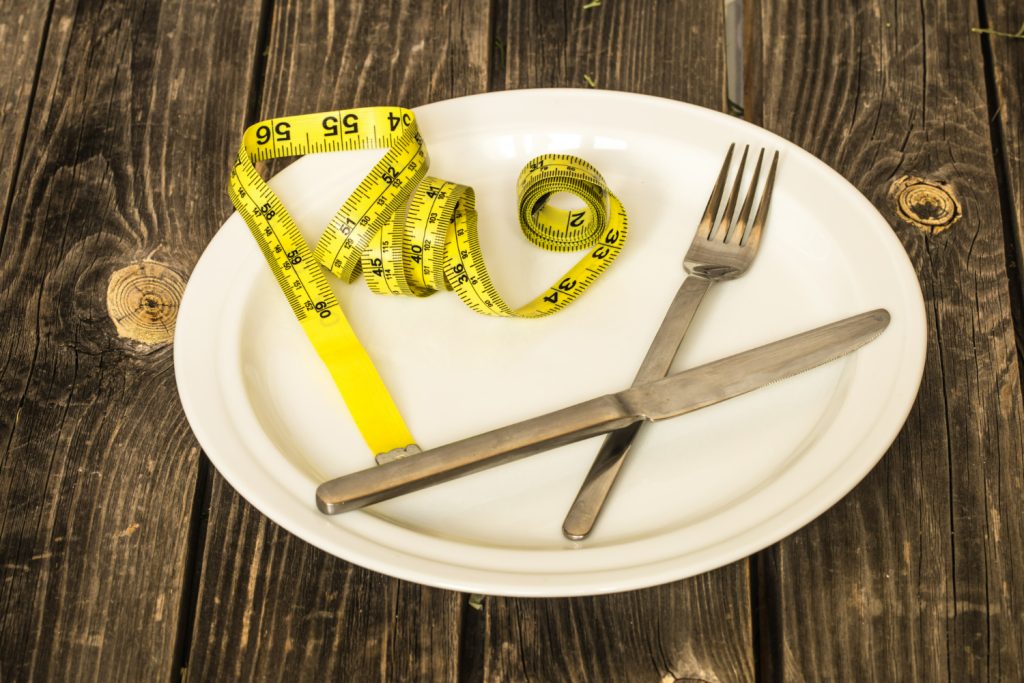The intermittent fasting trend has gained much popularity recently, and with good reason. Studies have shown that this eating pattern can help you lose weight, increase metabolism, and even prevent chronic diseases. Currently, the 18/6 intermittent fasting method is the most popular, which entails fasting for 18 hours and eating for six hours.
It may seem daunting to fast for 18 hours, but many people have succeeded. They achieved their health and fitness goals by keeping a strict schedule and changing their eating habits. No worries. We have got you covered. This post will shed some light on how to succeed in intermittent fasting on 18/6. Let’s dive in.
What is the 18/6 Intermittent Fasting Method

Image by Freepik
Intermittent fasting is a pattern of eating that involves periods of fasting and eating. Several intermittent fasting methods exist, but most people follow the method of intermittent fasting on 18/6.
During the 18/6 method, you fast for 18 hours each day and eat during a 6-hour window. The fasting period is when you can’t consume calories but can drink water, tea, and coffee without sugar or cream. Consequently, the eating period consists of two or three meals within six hours.
It is important to note that the 18/6 method is not a diet but rather an eating pattern. This means you can eat whatever you want during the eating period as long as you stick to the 6-hour window. However, making fresh meal plan is still essential to get the most out of it.
Even though the 18/6 method may seem hard at first, it gets easier over time. With some simple changes to diet and slowly extending the fasting period, you can stick to the method of intermittent fasting on 18/6.
Now let’s look at some advantages and disadvantages of 18/6 intermittent fasting.
Pros and Cons of 18/6 Intermittent Fasting

Image by Freepik
The practice of intermittent fasting has both advantages and disadvantages on its own. In the following sections, you will find some advantages and disadvantages of intermittent fasting.
Advantages
1. Weight Loss
One of the most significant advantages of the 18/6 intermittent fasting method is weight loss by fasting. The result of limiting your eating window to just six hours is that you are likely to consume fewer calories daily. This can result in weight loss due to a calorie deficit.
In addition, intermittent fasting has been shown to improve metabolism, so you burn calories more efficiently. In other words, even when you’re not exercising, your body still burns calories faster than if you were eating.
2. Improved Insulin Sensitivity
18/6 intermittent fasting has been shown to improve insulin sensitivity, which is essential for maintaining healthy blood sugar levels. By reducing the frequency of meals, the body has more time to process glucose, improving insulin sensitivity over time. People with type 2 diabetes or those at risk of developing it may benefit significantly.
3. Boosts Immune System and Reduces Inflammation
18/6 intermittent fasting may boost the immune system and reduce inflammation. When the body breaks from constant digestion, the immune system rests and recuperates, which can help fight off infections. In addition, reducing inflammation can improve overall health and decrease the risk of chronic diseases.
Disadvantages
1. Hunger
Hunger is the biggest challenge of the 18/6 intermittent fasting method. Going 18 hours without eating can be difficult, especially if you’re used to eating all day. It can lead to feelings of hunger, which is challenging to manage. This can lead to overeating during eating windows, negating fasting’s calorie deficit.
2. Negative Health Consequences
Some people may experience adverse side effects while practicing 18/6 intermittent fasting, such as headaches, dizziness, fatigue, or difficulty concentrating. While these side effects might be temporary, they can be annoying while your body adjusts to the new eating pattern.
3. Difficulty Sticking to the Plan
18/6 intermittent fasting can also present a challenge in terms of sticking to the plan in the long term. Some people might need help sticking to the limited eating window, especially if they have a busy schedule or social obligations.
Ultimately, this method can be helpful for weight loss by fasting and improved health. But make sure that you’re making healthy and fresh meal plan and understand the potential challenges and limitations.
How to Succeed in 18/6 Intermittent Fasting

Image by Freepik
Following are some tips you should follow to succeed at 18/6 intermittent fasting.
Start Slow
If you’re new to intermittent fasting, slowly and gradually move to an 18/6 fasting window. If you want to start fasting, start with a 12-hour window and gradually increase it each week until you get your ideal window. It can help your body adjust to the new eating pattern and reduce the risk of adverse side effects.
Stay Hydrated
Keep your body hydrated throughout the day to prevent hunger and keep you feeling full. You should drink at least eight glasses of water daily and add herbal tea and black coffee to your diet. Nevertheless, do not consume too much caffeine, which can impair sleep and cause other negative effects.
Plan Your Meals
Making your fresh meal plan can ensure you get all the nutrients you need. Using a meal planning app or working with a nutritionist can help you create a meal plan that fits your needs. Avoid processed foods and sugary snacks, and eat more whole, nutrient-dense foods like fruits, vegetables, and lean protein.
Choose Nutrient-Dense Foods
You should choose foods that provide sustained energy and are nutrient-dense foods since you will eat fewer meals overall. Consume fruits, vegetables, lean protein, and whole grains packed with nutrients. You should include various nutrient-dense foods to ensure your body gets the necessary vitamins and minerals.
Exercise Regularly
Exercise can boost metabolism and burn calories, which can help you lose weight with intermittent fasting. Exercise at least 30 minutes daily, five days a week, and consider strength training exercises to build muscle mass. If you feel tired or ill, listen to your body and rest.
Get Plenty of Sleep
Fasting can disrupt hunger hormones, so getting enough sleep is crucial for overall health. It would help if you aimed to get at least 7-9 hours of sleep per night and consider a relaxing bedtime routine to help you sleep better and faster. Before bedtime, turn off electronics, read a book, or practice relaxation techniques such as meditation or deep breathing.
10 Ways to Relieve Stress and Sleep Well
Be Flexible
Although it is essential to stick to a fasting schedule, you should also be flexible when necessary. You may require adjusting your fasting schedule or breaking your fast early, depending on the circumstances in your life. Don’t give up or become discouraged. Instead, be flexible and adapt as needed. The key to success is consistency, but minor adjustments won’t derail you.
Manage Your Time With Alarmy
An intelligent clock app like Alarmy can help keep you on track with your fasting schedule. Using Alarmy, you can set timers to remind you when it’s time to fast, and you can customize the settings for sound and vibration. Additionally, Alarmy can help you stay on track with your eating schedule by setting reminders for meal times.
Alarmy’s customizable alarm function helps you stay motivated and productive throughout the day. Therefore, with an app like Alarmy, you can manage your time more effectively and stay on track with your intermittent fasting goals.
FAQs
How successful is 18/6 intermittent fasting?
What are the best times for 18/6 intermittent fasting?
The Takeaway
That’s all from today’s round-up about how to succeed in 18/6 Intermittent Fasting. You boost your metabolism for optimal weight loss by fasting times and alternating eating. Following the 18/6-hour eating schedule can improve your metabolism and decrease the risk of developing certain diseases.
Those who have experience with fasting are recommended to practice intermittent fasting. Most people doing 16/8 intermittent fasting intermittently can switch to 18/6 seamlessly. It is similar to other intermittent fasting strategies, but it might be easier for you to get results faster.



